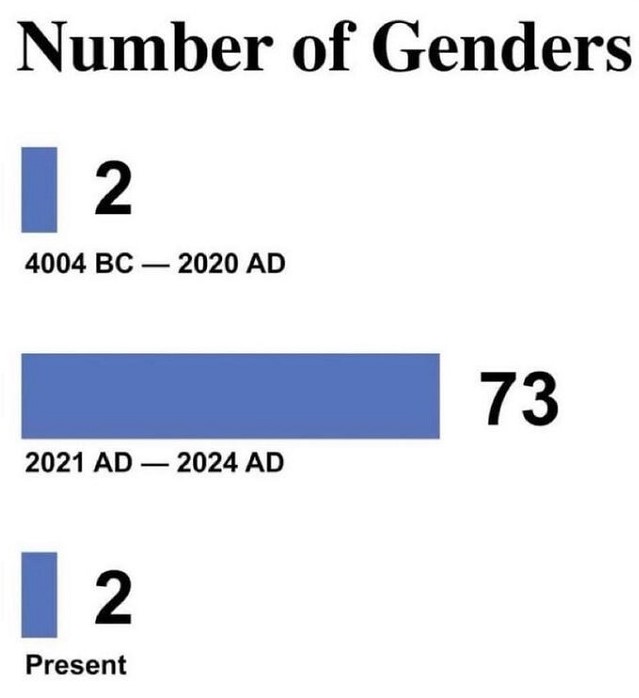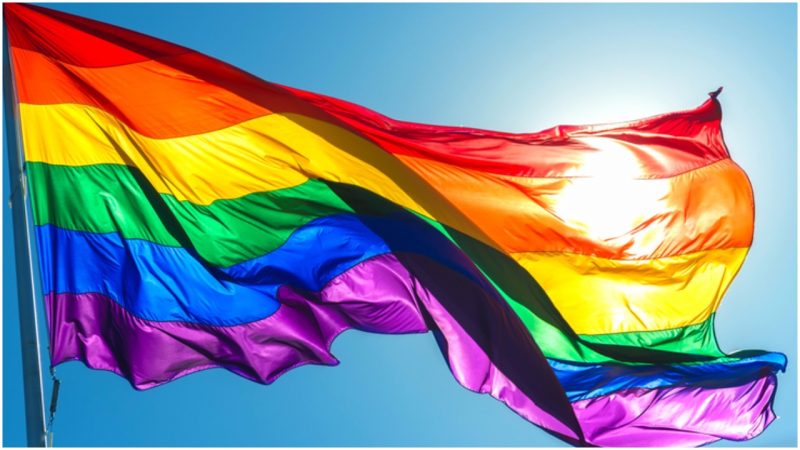Has anyone in the Pride “movement,” the word movement being a common colloquialism often preceded by the word bowel, and let’s be honest, the two are kind of connected, realized that June only has 30 days? Why not a month with 31 days?
Those Bigots!
It’s too late now, and that might also apply to Pride Month. Much like BLM, the annual gathering of rainbows requires legions of whipped corporate sponsors throwing cash at anything LGBTQ for fear of being … crapped on. Woke boards of directors worried that a misnamed gaystapo front group, The Human Rights Campaign (HRC), might give them a bad score on their Corporate Equity Index.
Thanks almost entirely to Robby Starbuck, having a good score from HRC has become bad for business—and a potential marketing or PR nightmare. Increasingly, so too is Pride Month looked upon with suspicion. They can blame the trans movement, but they might be afraid of them too.
The result is that too much public support for LGBTQ equity and inclusion can hurt your bottom line. Tribute must be given increasingly on the down low, if at all. In other words, you can’t be too proud about supporting Pride Month. You can still taste the rainbow, just don’t talk about it too much. It’s not Fight Club, not yet, but there has been a seismic shift in recent years.
While the destruction of the movement may not be imminent, we are seeing encouraging signs that through continued prayer, education, and activism, we can bring about the collapse of an ideology that seeks to normalize the abnormal — and shame what is good, right, and true.
For years, corporations cloaked themselves in rainbow branding and forced consumers to accept policies and products pushing the boundaries of LGBTQ+ ideology.
But . . . it didn’t lead to a pot of gold.
Hollywood and the media want everyone to believe that the LGBTQ community is immense. And why not? They don’t know anyone who doesn’t have Munchausen by proxy reflected in the face of a forcibly transitioned child. Everyone knows someone with a trans kid. The virtue-signal sacrifice of children in the pursuit of false belonging and the self-perpetuating demise of a generation. But that’s the only culture they know, forced on the rest of us and lapped up like sour milk by corporate fat cats, thinking they can profit if they appeal to this significant, soon-to-be un-closeted demographic. But it hasn’t transitioned into a windfall, quite the opposite. [Related: Target’s Pride Kids Collection Did Not Get Yanked Over Fears for Worker Safety -Execs Fear a Bud Light Level Boycott Event]
Tony Perkins at Newsmax reminds us that Target made itself a target when it went a bit too deep down the LGBTQ …rabbit hole. The real majority, at least of consumers, took offense to retail displays of “pride” directed at children—the normalization of an arousal culture, whose defining characteristic is that sex and gender are a moving target.

I might be this today and that tomorrow, and you need to respect and honor it. No. No, we don’t. That’s mental illness. Target stock reportedly dropped by as much as sixty-one percent in the aftermath and the only violence came from LGBTQ folks pissed at Target’s change of heart.
Bud Light lost 20% of its market share, probably forever, due to the Dylan Mulvaney controversy. And Robby Starbuck has been uncovering woke CRT, DEI, and other policies favored by Corporate Pride mongers who bail on that posturing once exposed to avoid a similar fate.
Is that why Kellogs isn’t pimping it’s All Together Cereal anymore?
Too many rainbows could wreck your business, which is having a dampening effect on Pride month 2025—a beginning to a perhaps ignoble end?
Be you, but maybe without the creepy parades and all the needy see me (Dammit!) co-dependent bullshit?

Some say the Mulvaney farce was the turning point, and that might be true. It was a high-profile market share lynching that some still do not understand. It wasn’t that some woke Anheuser-Busch marketing exec pulled the trigger on a guy in the dress as a possible face for the brand. It was the decision to consider using that face with the Bud Light brand to celebrate women.
What if we celebrate women with a dude in a dress? Everyone will love it, and we’ll be seen as diversity heroes. Instead, they cracked the Seventh Seal for middle America. People who were not paying attention, or who were just as likely to keep their heads down, who drank Bud Light or hung with people who did were like, what the F…! Sales dropped, and middle America has been pushing back ever since.
It was a cultural sea-change moment, and it may have been dawning regardless. The post-COVID response awareness had already led people to learn not to trust institutions, of which Pride had become one of many. The boys winning girls sports events stories began to ride the wave and parents took to school board meeting to complain about the porn and grooming. People were no longer afraid, and corporations take their cues from public sentiment.
Sure, they might drop a big dime to support pride, but not as openly as before. That’s good news for Starbuck. He and his acolytes will have opportunities to pull that support out of the closet and into the daylight. A practice of citizen journalism that has the J-School grads reaching for the Latuda.
We’re not out of the rainbow woods yet, but things, they are a changing, and this change is good.
